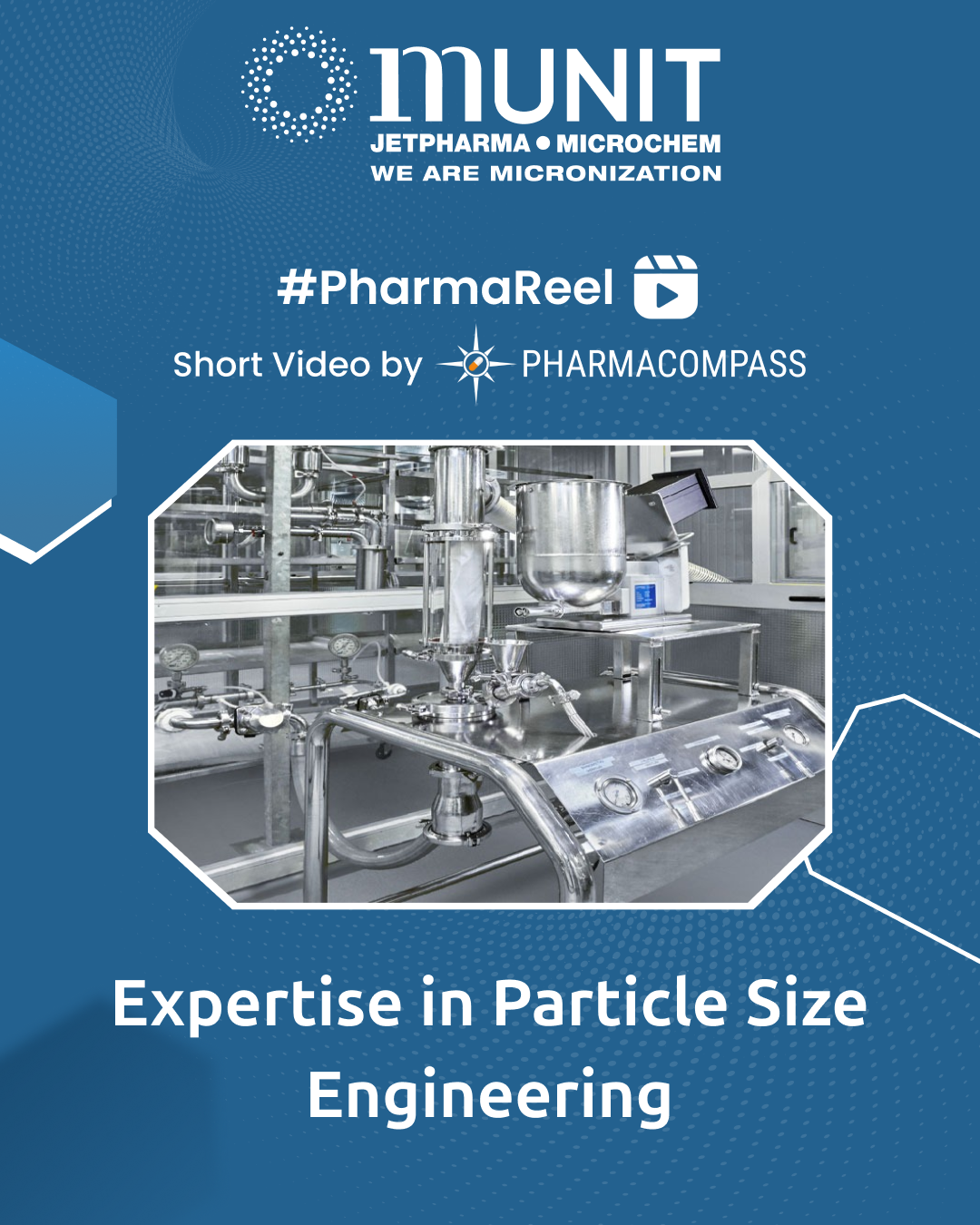Overview of pharmacy compounding & compounded medicines for various applications & more on compounding pharmacies offering such contract services.
Q1. What is pharmaceutical compounding and what are the benefits?
Pharmacy compounding is the art and science of preparing personalized medications for patients. Compounded medications are custom made for each patient – individual ingredients are mixed together in the exact strength and dosage form required by the patient.
Frequently, a community or a hospital pharmacist welcomes patients that are not able to take an approved medication, prescribed by a physician. A compounding pharmacist with a physician’s consent can prepare a unique drug dosage form, or a pharmaceutical vehicle, for a particular patient via drug compounding.
As per the FDA, drug compounding is often regarded as the process of combining, mixing, or altering ingredients to create a medication tailored to the needs of an individual patient. However, compounded medications are not FDA-approved.
During drug compounding it is the pharmacist’s responsibility to prepare the compounded dosage forms with the proper dose of the API and the appropriate quality and purity of all ingredients while maintaining sanitary, and if necessary, aseptic conditions when preparing the compounded medications.
Some Benefits of Pharmaceutical Compounding or Compounding Pharmacy
- One of the benefits of a compounded medicine is that it may meet a patient’s specific needs in a way that a mass-produced product cannot.
- Compounding drugs created by pharmacists play an important role in providing access to discontinued medications.
- Drug compounding may increase patient compliance by making medications more attractive to consumers including geriatric and pediatric patients.
- Compounding allows for alternative compounded dosage forms. For instance, patients who have difficulty swallowing a pill may find it easier to take their medication in a pleasantly flavored liquid form.
- Compounded drugs can sometimes be very important in meeting a patient's needs, such as when a person is allergic to an inactive ingredient found in commercially available forms of medications.
Q2. How is pharmaceutical compounding different from drug manufacturing?
Despite the fact that both compounding and pharmaceutical manufacturing share many similarities, the two processes are not the same. In fact, they share more differences than they do similarities.
Drug manufacturers produce medications in mass quantities which are then sold to pharmacies, healthcare practitioners or others who are authorized to sell them. Whereas, traditional compounding is the preparation of a medication to meet the prescriber’s exact specifications to be dispensed to a particular patient.
- Pharmaceutical Drug Manufacturing
Drug manufacturing is the process of industrial-scale creation of drugs by pharmaceutical companies and drug manufacturers. Medication is mass-produced in a factory to a set formula approved by federal drug agencies. Often, pharmaceutical manufacturing companies generate millions of doses or formulas per year.
Manufacturing thus creates drugs in pre-set formulas or doses. Furthermore, pharmaceutical manufacturing may entail the production, preparation, conversion, processing, etc. of a drug or a medical device.
- Pharmaceutical Compounding
Compounding is the process a compounding pharmacy uses to create customized medications or customized compounded formulations from base ingredients for patients. Customized medications are made from scratch by a specially-qualified chemist as directed by a doctor in a script. Therefore, drug compounding would not be possible without existing medications to manipulate and specify.
While pharmaceutical manufacturing involves a chemical reaction, compounding is a physical mixing process which doesn’t entail a chemical reaction. Physicians rely on compounders for pharmaceutical solutions when “patent” prescription medications inadequately address their patients’ needs.
Besides the differences explored above, pharmaceutical drug manufacturing and compounding share some similarities. Both processes focus on the creation and delivery of drugs to treat illnesses; without them, many modern medications wouldn’t be available or would only be available in limited formats.
Q3. What are some compounding errors?
Some Common Pharmacy Compounding Errors
- Pharmacy compounding involves the preparation of customized medications (customized compounded formulations) for patients with specialized needs. When done on a small scale based on prescription medications, pharmaceutical compounding is relatively safe.
However, problems may arise when compounding is performed at a large scale without individual prescriptions. This can lead to compounding errors which may adversely affect patients including geriatric and pediatric patients.
- Compounding errors can be attributed to contamination or concentration. Concentration errors predominantly result from compounding a prescription for a single patient, and disproportionately affect pediatric patients.
Contamination errors largely occur during bulk distribution of compounded medicines for parenteral use, and affect more patients.
- Compounding risks include bacterial or fungal contamination, unsafe combinations of products and stability problems. An unsterile compounded pharmaceutical preparation is a serious problem that can result in injury and even death.
- In compounding pharmacy, inadequate training and oversight of compounding pharmacists such as using wrong ingredients, giving ambiguous instructions, and not verifying all the steps in an outlined procedure can lead to compounding errors which may have a potentially adverse and at times lethal effect on patients. Proper training and regular checks can help reduce the human errors made by compounding pharmacists.
- Errors made in both simple and complex compounding calculations have the potential to create significant safety problems and some compounded products pose risks due to the technical nature of their delivery systems.
Compounded drugs are not as rigorously regulated as approved medications. This is one of the major causes why compounding errors arise and go unnoticed. Stricter regulation of compounding can curb various errors associated with specialized compounding activities.
Q4. Who regulates compounding pharmacies?
Besides the difference between pharmaceutical manufacturing and compounding explored above, they also differ legally. Both manufacturers and compounding pharmacies must follow strict guidelines which are set by state and federal authorities.
On the other hand, drug manufacturers follow guidelines set by the Food and Drug Administration (FDA). This allows them to sell medications to distributors who, in turn, sell to pharmacies. However, the specialized compounding process and guidelines are overseen by the United States Pharmacopeia (USP) and the State Boards of Pharmacy.
In the United States, compounding pharmacies are licensed and regulated by their respective states. Most state boards of pharmacy use the United States Pharmacopeia's (USP) Chapter 797 guidelines in the development of regulations for compounding sterile pharmaceutical preparations.
Generally, state boards of pharmacy have primary responsibility for the day-to-day oversight of state-licensed pharmacies that are not registered with the FDA as outsourcing facilities. Facilities that register with the FDA as outsourcing facilities under section 503B are primarily overseen by the FDA and inspected by them according to a risk-based schedule.
Every state has laws and regulations guiding pharmacy standards and requirements, addressing issues such as required licenses for each facility and for the credentialed pharmacists and other employees who work there.
Pharmacists engaged in compounding are expected to follow applicable standards and regulations for the types of preparations that are compounded. The FDA has oversight for the integrity and safety of the drugs (called Active Pharmaceutical Ingredients or APIs) used in compounded pharmaceutical preparations. The Drug Enforcement Administration (DEA) has oversight for any controlled substances used in the preparation of compounded medicines.
However, regulatory oversight of compounding is piecemeal and compounding errors have resulted in patient harm. In the US, drug compounding is important in ensuring access to vital medications, but has the potential to cause harm to patients without adequate safeguards in place.
Q5. Which are the leading companies offering pharmaceutical compounding services?
Some leading compounding pharmacies and contract manufacturers offering pharmaceutical compounding services and customized compounded formulations are noted below.
Quotient Sciences - Pharmacy Compounding Services
Quotient Sciences provides integrated pharmacy compounding, formulation, GMP manufacturing and clinical testing solutions to help clients achieve their proof-of-concept (POC) milestone quickly, saving them precious development time and money.
Quotient’s pharmacy compounding capabilities offer a streamlined pathway to start FIH clinical testing, without extensive CMC investment. Dose preparations are made in “real-time”, giving clients the flexibility to make quick changes to the dose based on human data.
Laboratorium Ofichem B.V - Pharmacy Compounding Services
Ofichem has a state of the art contract laboratory for raw materials for medicinal products as well as finished dosage forms and compounded dosage forms for the specialized compounding market, including hospital pharmacies and local pharmacies.
Fagron - Pharmaceutical Compounding Services
Fagron's pharmaceutical compounding services offer personalized ready-to-use medications that are prepared in their sterile and non-sterile specialized compounding facilities. Fagron is a leader in pharmaceutical compounding and is currently active in 35 countries.
Doughertys Pharmacy - Sterile & Non Sterile Pharmaceutical Compounding Services
Dougherty’s sterile and non-sterile compounding labs are state of the art facilities where it prepares a full array of custom medications such as transdermal creams, flavored medications for children and bio-identical hormone treatments.
All Suppliers






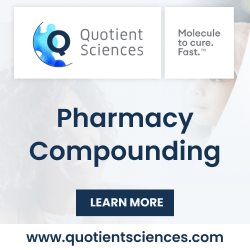
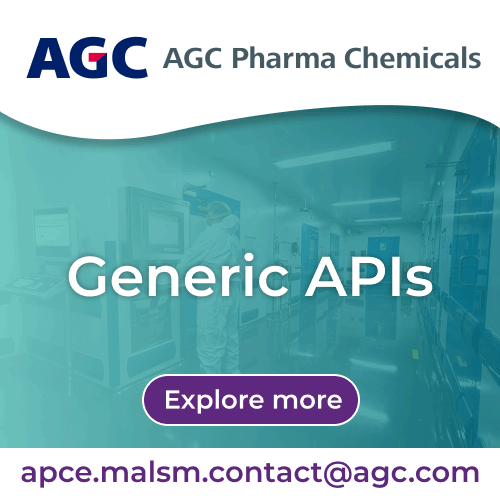
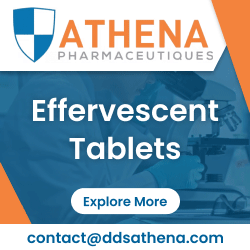
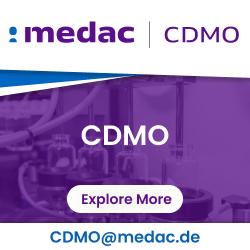
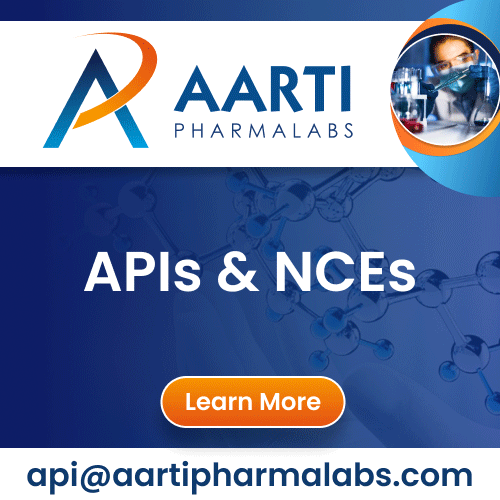
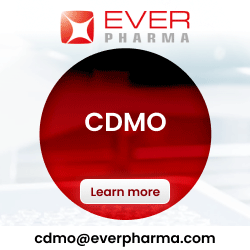




 Quotient Sciences- Molecule to Cure. Fast.
Quotient Sciences- Molecule to Cure. Fast.





